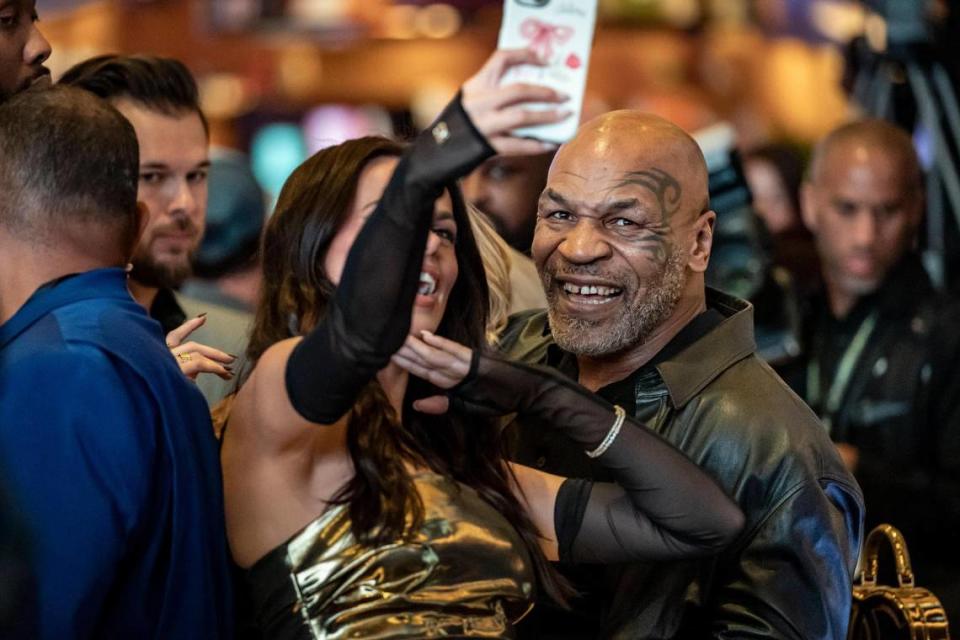Casino, poker room owners asks FL Supreme Court to end Seminole Tribe’s sports betting
- Oops!Something went wrong.Please try again later.
In a quest to quash a pact between the Seminole Tribe of Florida and the DeSantis administration that launched online sports betting, the owners of Bonita Springs Poker Room told Florida’s Supreme Court this week that it’s the job of voters to approve the multibillion-dollar endeavor, not Florida legislators.
The recent filing with the state’s Supreme Court puts the Havenick family — the Bonita Springs owners and former owners of Miami’s Magic City Casino — on two tracks to try to kill a plan set in motion by Florida Gov. Ron DeSantis and state legislators.
The U.S. Supreme Court, which has yet to weigh in on a separate argument from the Havenicks, nonetheless opened the floodgates to online sports betting and roulette and craps on Seminole tribal land when it lifted a stay order from a lower federal court in October. The court is expected to eventually weigh in on whether the Seminole Tribe should be permitted to operate its sports gambling servers outside of tribal lands.
READ MORE: Legal fight over Florida sports betting appears headed to U.S. Supreme Court
The lifting of the stay in the fall by the Supreme Court was embraced by the Seminole Tribe, which operates the glitzy Hard Rock Hotel & Casino in Hollywood. The launch in December of sports betting and table games at Hard Rock drew an A-list crowd of celebrities that included Dwyane Wade, Rick Ross, Mike Tyson and Gloria and Emilio Estefan.

READ MORE: DWade, Estefans, star rappers launch sports betting, table games at Hard Rock Casino
In the family’s latest challenge to the pact between DeSantis and the Seminoles before the state’s Supreme Court, they argue that the only people who have the right to decide if gambling should be permitted off Seminole land are voters.
“The Governor exceeded his authority by entering into a compact with the Seminole Tribe of Florida granting the Tribe the exclusive right to offer off-reservation online and in-person sports betting throughout the entire state and by signing legislation ratifying the 2021 Compact and making such wagers legal statewide,” the petition states.
Repeated calls by the Herald this week to attorneys representing the Havenicks in Miami and Tallahassee were not returned.
Florida Supreme Court is the new battleground
With the U.S. Supreme Court’s lifting of the stay, the pari-mutuel companies, West Flagler Associates, which holds three jai-alai licenses, and Bonita-Fort Myers Corp., which operates a poker room in southwest Florida, didn’t take long to forge a second path attempting to stop the agreement. In their Dec. 23 court filings with the Florida Supreme Court, they contend the pact violates Amendment 3, which Floridians approved in 2018 in a statewide referendum and requires voters to decide whether to authorize casino gambling in Florida.
“It should exercise it to vindicate the People’s exclusive right to control the expansion of casino gambling in Florida,” the companies argued in the recent filing.
READ MORE: Florida voters pass Amendment 3, say we want to decide on gambling
The companies also argued that sports betting and Seminole table games violate the Federal Indian Gaming Regulatory Act, the 1988 federal law that regulates tribal gaming across the country.
Florida’s Amendment 3, which received about 70 percent of the vote, requires a constitutional amendment started from a citizen-created petition to authorize expansion of casino gambling. The only exception to needing voter approval is an expansion on tribal lands.
“Under Florida’s constitution, the People retain ultimate power,” the pari-mutuel companies contend in their latest filing. “[DeSantis’ and the Florida Legislature’s] attempt in various, unavailing ways, to dodge the plain language of this Amendment to shoehorn statewide gaming into an exception clearly meant only to permit gaming on tribal lands.”
DeSantis and the Seminoles, who aren’t named in this newest challenge due to sovereign immunity, argue that Amendment 3 did not remove the Legislature’s power to authorize online sports betting. In addition to DeSantis, the defendants are Florida House Speaker Paul Renner, a Republican who represents the St. Augustine area, and Florida Senate President Kathleen Passidomo., a Republican who represents parts of Southwest Florida.
“Sports betting is not ‘casino gambling’ as that term is defined in the Florida Constitution, because it is ‘not the type of game typically found in casinos,’” read a DeSantis administration brief submitted to the court on Dec. 1. “[Amendment 3’s] citizen-initiative requirement is therefore inapplicable.”
A spokesperson for the Seminole Tribe told the Miami Herald it was reviewing the filing.

